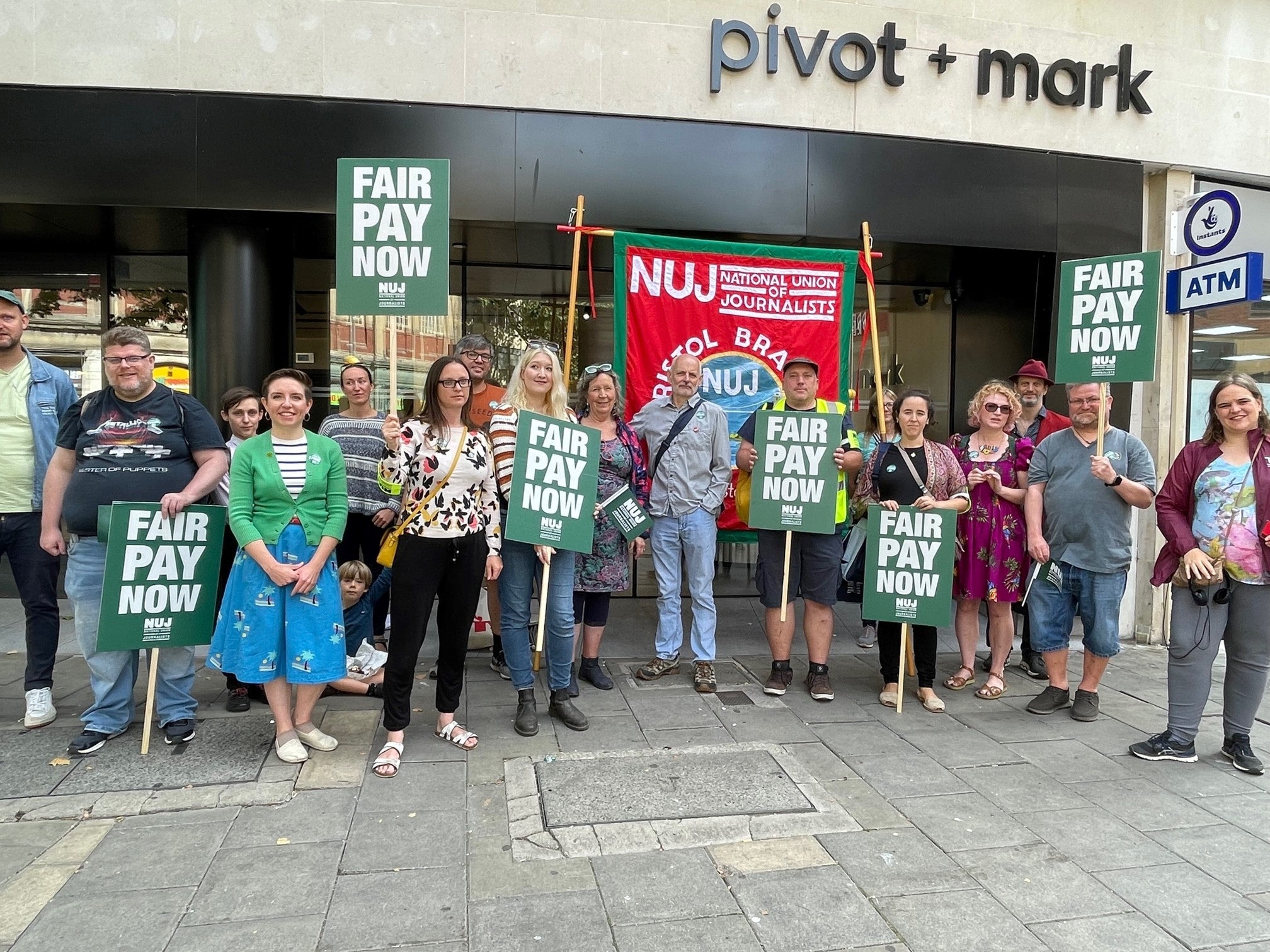Dividends paid to Reach shareholders would fund 7% pay rise, union says
Employees across the newspaper group are on strike after negotiations between executives and the union collapsed.

Dividends paid to shareholders of the Reach newspaper group last year would have funded a 7% pay increase for staff, striking journalists say.
Staff at many of the group’s national and regional titles staged a walkout on Wednesday following a long-running dispute over pay.
Journalists are calling for a pay rise of 8.5% to help them cope with the rising cost of living but are at a stalemate with bosses who have capped their offer at 3%.
The National Union of Journalists (NUJ) says the £14 million paid out in half-year dividends to Reach shareholders in 2021 would have funded a 7% pay rise for staff.
Employees working on the Daily Mirror, the Daily Express, Daily Record, Sunday Mail, Western Mail, Irish Star, the Bristol Post, the Manchester Evening News, Liverpool Echo, Birmingham Mail, The Journal, South Wales Evening Post and Reach’s Live websites are on strike.
Reach has closed the Bristol Post’s former offices with journalists instead given a desk in a shared workspace in the centre of the city for only one day each week.
The space has no wifi, employees told the PA news agency, so there is little point in them using it.
Journalists say that by forcing them to work from home, Reach has pushed the running costs of the company on to its workers.
Whatever the rights and wrongs, Reach has built a profitable business in the digital age - we are just asking that Reach shares the prosperity that it is creating for its bosses and shareholders with the employees that are keeping the business running
The NUJ said 14 journalists have left the Bristol Post since the beginning of the year – more than half the editorial staff – due to poor wages.
It said these people had not been replaced, piling the pressure on those that remain.
Paul Breeden, treasurer of the Bristol branch of the NUJ was at the picket line and told PA: “People at Reach are just fed up to the back teeth of not being given anything even close to a decent wage.”
Mr Breeden criticised Reach chief executive Jim Mullen for his £4 million salary package, while simultaneously presiding over left-leaning titles such as the Daily Mirror.
“It shows huge hypocrisy when a business can trade on standing up for working people when it is not prepared to give decent reward to its own workers,” he said.
Employees have also complained at being asked to spend the majority of their day doing versions of stories first reported by other outlets, with little opportunity to do their own journalism.
Mr Breeden said while this was an issue, this was not the cause of the strike.
“Many feel they would rather be doing something other than what they are told to write about, but journalism is changing and perhaps not for the better,” he said.
“But whatever the rights and wrongs, Reach has built a profitable business in the digital age – we are just asking that Reach shares the prosperity that it is creating for its bosses and shareholders with the employees that are keeping the business running.”
A further three-day strike is due to take place from September 13 to 15, coinciding with the week of the TUC (Trade Union Congress) Congress in Brighton.
A Reach spokesperson said the company was “disappointed” talks with the NUJ had broken down.
“Whilst this is not the outcome we would have wished for, 2022 continues to be extremely challenging for the whole publishing sector, with reduced demand for advertising, and energy inflation driving the cost of newsprint to record levels,” they said.
“We therefore remain focused on protecting the interests of all our colleagues and stakeholders, ensuring the group has a sustainable future in the face of an uncertain economic climate.”
They added: “We continue to be open to further talks at any time to resolve this dispute and move forward.
“Reach’s decision not to accept the NUJ proposal was not based on one personal opinion but on a consistent agreement at the senior level to protect the future of the business.”
A spokeswoman for Reach said the Bristol Post’s new offices had only just opened and there was a temporary restriction on desk space.
Bookmark popover
Removed from bookmarks